SBL Press publishes books with a scholarly focus as well as works intended to convey the finest biblical scholarship to wider audiences: students in college, university, and seminary courses; leaders in church and synagogue settings; and members of the general public interested in biblical study. SBL Press focuses on the needs of biblical scholars and students by creating resources for the classroom and research and fosters the professional development of biblical scholars by creating venues for publication, enhancing editorial skills, and providing critical responses to manuscripts submitted for publication.
Books
SBL Press offers e-books through Kindle and Google Play
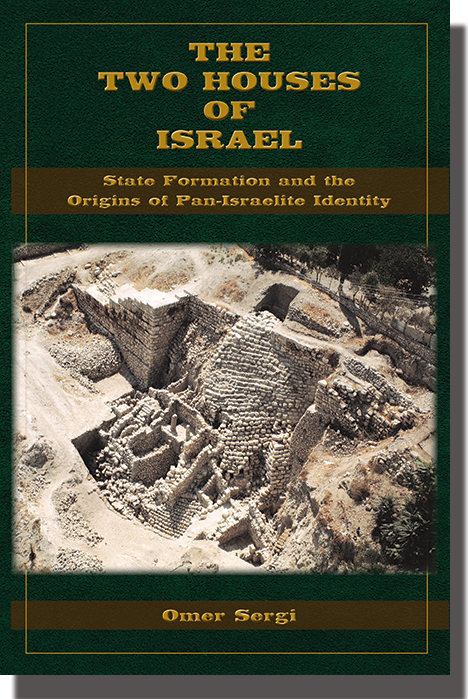
The Two Houses of Israel: State Formation and the Origins of Pan-Israelite Identity
Omer Sergi
Based on a thorough examination of the material remains and settlement patterns in the southern Levant during the Late Bronze Age and the Iron Age and on a review of the relevant historical sources, this book provides a detailed reconstruction of the ways in which Israel and Judah were formed as territorial polities and specifically how the house of David rose to power in Jerusalem and Judah. In light of that, it further situates the stories of Saul and David in their accurate social and historical context in order to illuminate the historical conception of the united monarchy and the pan-Israelite ideology out of which it grew.
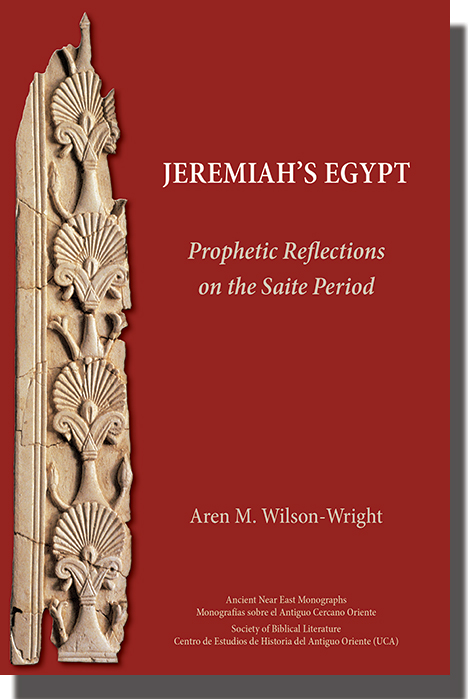
Jeremiah’s Egypt: Prophetic Reflections on the Saite Period
Aren M. Wilson-Wright
Jeremiah’s Egypt: Prophetic Reflections on the Saite Period is the first book-length work to highlight the importance of Egypt for understanding the historical context and literary development of the book of Jeremiah. Based on a comprehensive reconstruction of Egyptian-Judahite contact in the late seventh and early sixth centuries BCE, Aren M. Wilson-Wright shows that the numerous references to Egypt in the book of Jeremiah are highly personal reactions to the injustices perpetrated by the Egyptian regime and its self-serving Judahite collaborators, some of which see Babylon as a means of escaping Egyptian domination. Her analysis reveals that the key choice animating the book of Jeremiah is not Judahite autonomy versus Babylonian domination but rather Egyptian domination versus Babylonian domination.
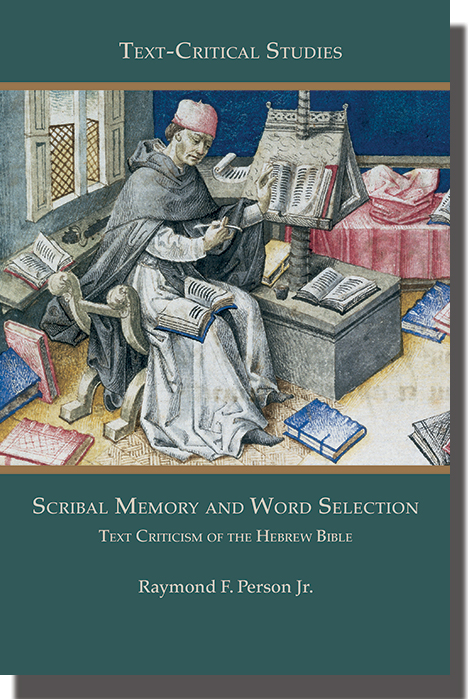
Scribal Memory and Word Selection: Text Criticism of the Hebrew Bible
Raymond. F. Person, Jr.
In Scribal Memory and Word Selection: Text Criticism of the Hebrew Bible, Raymond F. Person Jr. draws from studies of how words are selected in everyday conversation to illustrate that the same word-selection mechanisms were at work in scribal memory. Using examples from manuscripts of the Hebrew Bible, Person provides new ways of understanding the cognitive-linguistic mechanisms at work when scribes transmitted texts. Person reveals that, while our modern perspective may consider textual variants to be different literary texts, from the perspective of the ancient scribes and their audiences, these variants could still be understood as the same literary text.
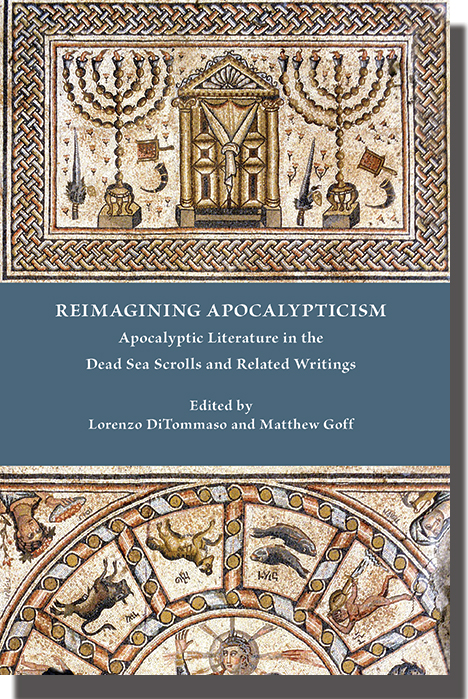
Reimagining Apocalypticism: Apocalyptic Literature in the Dead Sea Scrolls and Related Writings
Lorenzo DiTommaso, Matthew Goff, editors
The Dead Sea Scrolls have expanded the corpus of early Jewish apocalyptic literature and tested scholars’ ideas of what apocalyptic means. With all of the scrolls now available for study, contributors to this volume engage those texts and many more to reexplore not only definitions of the genre but also the influence of the Dead Sea Scrolls on the study of apocalyptic literature in the Second Temple period and beyond. Part 1 focuses on debates about categories and genre. Part 2 explores ancient Jewish texts from the Second Temple period to the early rabbinic era. Part 3 brings the results of scroll research into dialogue with the New Testament and early Christian writings.
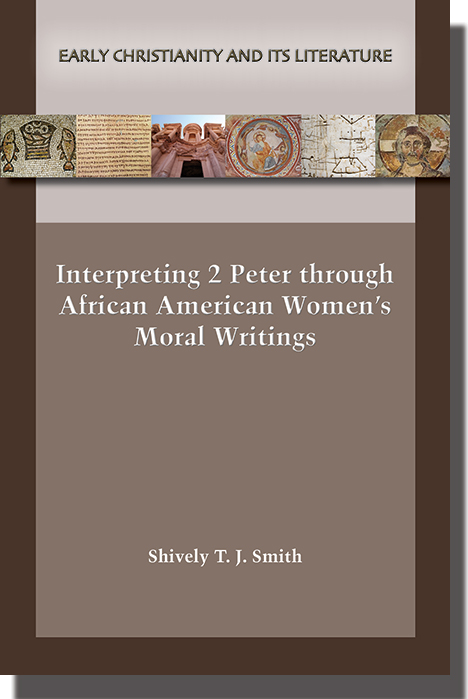
Interpreting 2 Peter through African American Women’s Moral Writings
Shively T. J. Smith
Shively T. J. Smith reconsiders what is most distinct, troubling, and potentially thrilling about the often overlooked and dismissed book of 2 Peter. Using the rhetorical strategies of nineteenth-century African American women, including Ida B. Wells, Jarena Lee, Anna Julia Cooper, and others, Smith redefines the use of biblical citations, the language of justice and righteousness, and even the matter of pseudonymity in 2 Peter. She approaches 2 Peter as an instance of Christian cultural rhetoric that forges a particular kind of community identity and behavior. This pioneering study considers how 2 Peter cultivates the kind of human relations and attitudes that speak to the values of moral people seeking justice in the past as well as today.
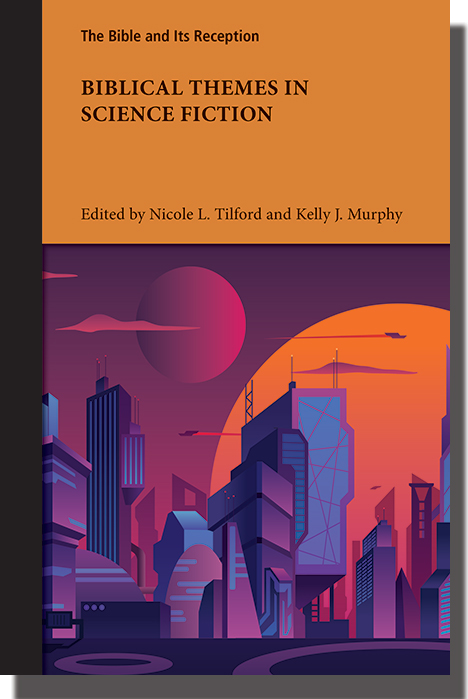
Biblical Themes in Science Fiction
Nicole L. Tilford, Kelly J. Murphy, editors
Biblical Themes in Science Fiction is a handbook for exploring how biblical themes appear in contemporary science fiction. Contributors examine the relationship between ancient and modern depictions of Adam and Eve, the tower of Babel, Noah’s ark, handmaids, utopian cities, the promised land, the city of Babylon, messiahs, resurrection, and the apocalypse. Essays are supplemented by images and key science fiction sources for diving deeper into how the Bible influenced authors of not only literature but of films and video games as well. An afterword considers the imaginative impulses common to both science fiction and biblical texts.
See More
Support SBL Press
Your generous donations help ensure that the important work of SBL continues.
SBL Press Staff
Bob Buller, Director
Heather McMurray, Marketing and Sales Manager
Jonathan Potter, Serials Manager
Nicole Tilford, Production Manager
SBL Press Orders– Customer Service
877-725-3334 (in North America) or 802-864-6185 (outside North America)
Examination Copies
Examination copies may be ordered at a 50% discount plus shipping by providing the instructor’s name; institutional address with phone, fax, and email; and course title, term, and anticipated enrollment. Orders are limited to three titles per course and must be prepaid by credit card or check. Payment will be refunded for examination copies returned in saleable condition and, upon request, for copies adopted within 90 days. When requesting a refund, please include name; institutional address with phone, fax, and email; and course title, term, and enrollment. Exam copy requests may be emailed, mailed, or faxed to:
SBL Press Customer Service/Desk Copy
P.O. Box 2243
Williston, VT
05495-2243 USA
Fax: 802-864-7626
Email: sblpressorders@aidcvt.com
Desk Copies
Instructors may request a complimentary copy of any title adopted as a required textbook for a course when 10 or more students have enrolled. Requests must include the instructor’s name; institutional address with phone, fax, and email; course title, term, and enrollment with confirmation of registration from the school’s registrar office. Desk copy requests may be emailed, mailed, or faxed to:
SBL Press Customer Service/Desk Copy
P.O. Box 2243
Williston, VT
05495-2243 USA
Fax: 802-864-7626
Email: sblpressorders@aidcvt.com
SBL Press is a member of the Association of American University Presses (AAUP)
Return Policy
Books other than print-on-demand titles may be returned within one year of purchase. Returns must be in original condition, free of damage, stickers, and marks. Print-on-demand titles may not be returned. Damage or shipping errors must be reported within 30 days. A copy of the original invoice with returned items indicated or the original invoice number must accompany returns. The customer is responsible for the package until it is received in our warehouse. A credit memo will be issued following acceptance of returned items. Returns should be shipped to SBL Press, Attn: Returns Department, 82 Winter Sport Lane, Williston, VT 05495-2243 USA.
